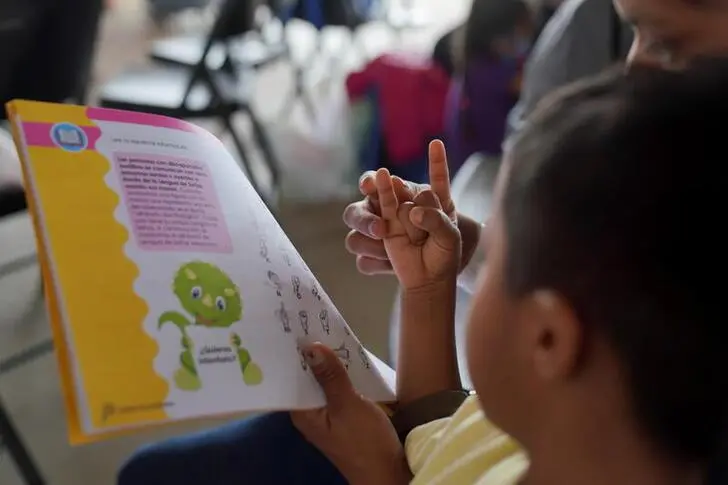PHOTO
JOHANNESBURG - Bongumusa Manana, a 19-year-old deaf student who studies in a township in Johannesburg, sees South Africa's move to recognise sign as an official language as a huge breakthrough that will help him to get to university and make his "dreams come true".
President Cyril Ramaphosa signed legislation into law last month recognising sign as the country's 12th official language, alongside English, isiZulu, Afrikaans and others, to help protect the rights of the deaf and promote inclusivity.
"Previously the challenge was that when you go to a police station or take a (minibus) taxi, it was very difficult to communicate," Manana said in sign at the Sizwile School for the Deaf in Dobsonville, Soweto.
"Before it was an official language... there was absolutely no access" to communicating with other people, he signed.
Still, South Africa only has about 40 deaf schools and one tertiary institution that is fully accessible to deaf people, meaning there is still work to be done to improve that access.
"It is a very rich, beautiful language but we need people who are going to be equipped enough to develop it even more," said Andiswa Gebashe, a South African Sign Language activist and former interpreter for Ramaphosa.
World Atlas, an online site that studies demographics, says only 41 countries recognise sign language as an official language, just four of them in Africa - Kenya, South Africa, Uganda and Zimbabwe.
It has been a long journey for South Africa to get this far, and deaf students have been waiting "for those barriers to be removed", signed Wilma Newhoudt-Druchen, the country's only deaf member of parliament.
Manana's dream is to attend university next year.
"Now that it's an official language, I know that I can go to university and I can make my dreams come true," he said in sign. "I can achieve anything."
(Reporting by Thando Hlophe Writing by Tannur Anders Editing by Alexander Winning and Nick Macfie)




















